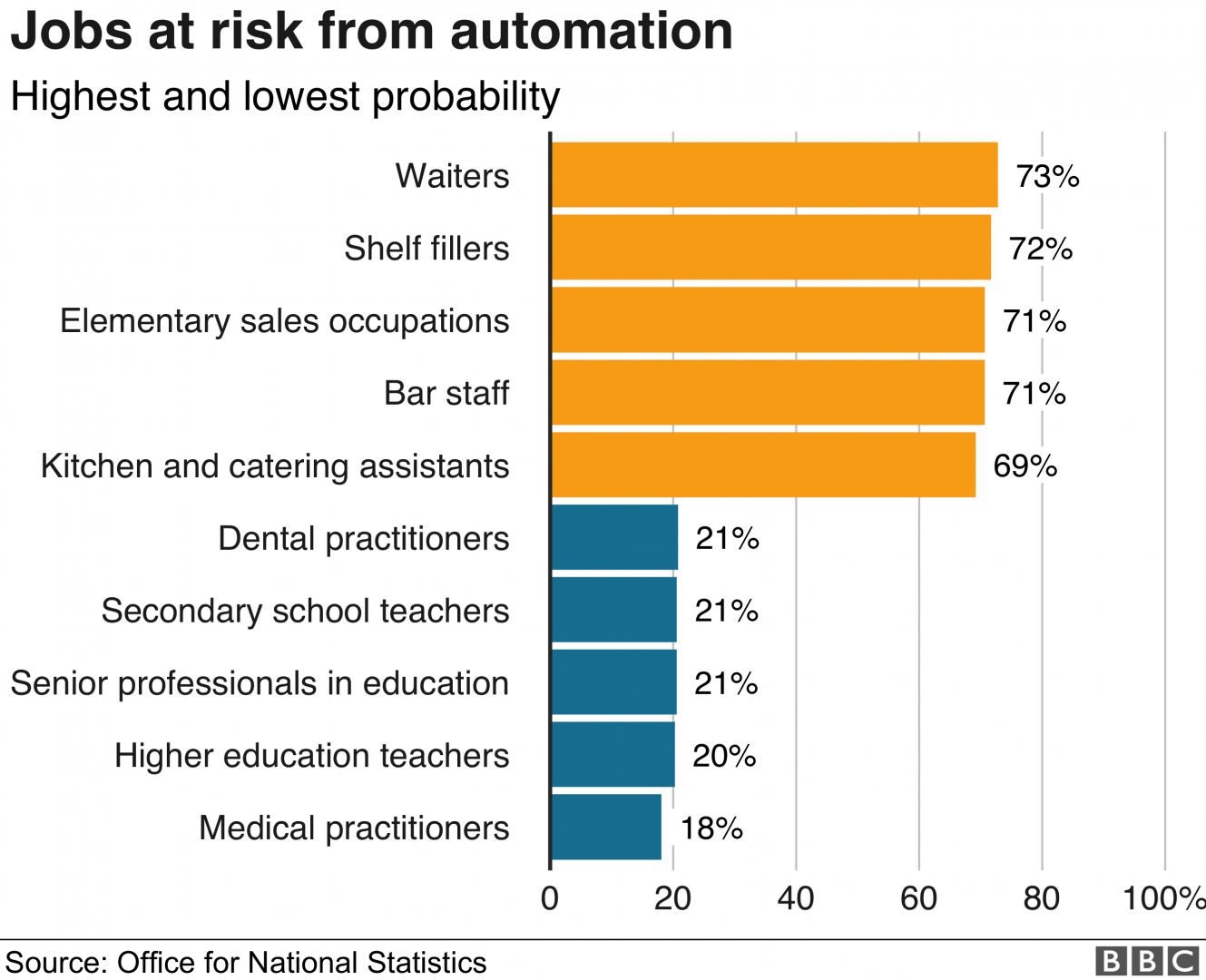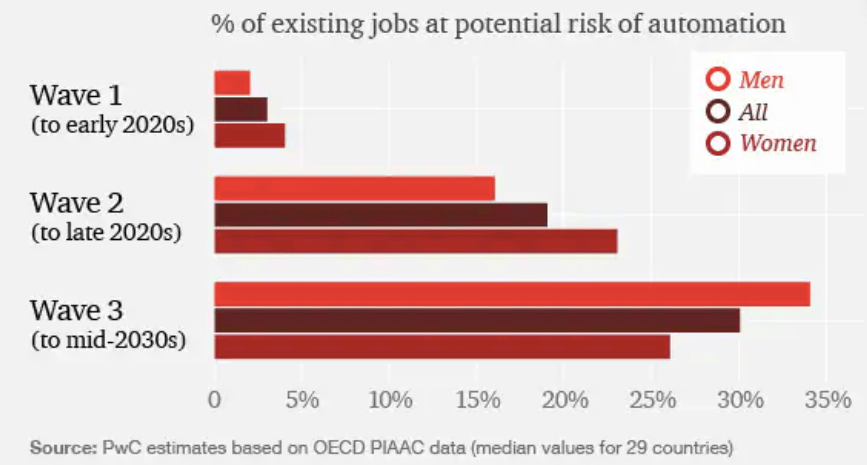
Which Jobs Will Likely Be Replaced by Robots?
Artificial intelligence (AI) will replace receptionists, manufacturing workers, proofreaders, bookkeeping clerks, basic retail jobs, receptionists and cashiers.

The fear of machines taking our jobs dates back from decades since the inception of the first robots.
Artificial intelligence (AI) is transforming how businesses operate and execute their operations.
The rise of artificial intelligence during Covid-19 has also led to a change in skills requirements for organizations including blue collar and white collar workers.
Artificial intelligence has brought numerous benefits such as:
- Improved performance
- More business opportunities
- Higher productivity
- Better growth
- 24/7 availability

Artificial intelligence won't replace jobs which require conflict resolution, negotiation, emotional intelligence, and empathy.
Researchers have created robots that are capable of carrying out specific tasks automatically. They can even replicate human efforts and provide better outcomes.
Artificial intelligence will replace at least 40% of jobs in the next 15 years.
Processes will become smarter, and machines will be more humanized in the long run.
Although AI can demonstrate emotional intelligence, calculate faster, and detect patterns better than humans, AI cannot initiate these actions by itself.
Human creativity knows no limits but artificial intelligence is quickly catching up.
To quote the great Stephen Hawking:
The rise of powerful AI will be either the best, or the worst thing, ever to happen to humanity.
Artificial intelligence has proven that it can outperform humans in a variety of cognitive and computational tasks, from predicting the weather and market conditions to performing complex calculations like compound interest and taxes.
Sentient AI won't be threatening humanity yet, many of us will be affected by its actions and decisions.
Trending
-
1 How Does SaaS Differ From IaaS And PaaS?
Fabrice Beaux -
2 Single Page Applications vs Multi-Page Applications
Fabrice Beaux -
3 Top 7 Effective Strategies for Multi-Language Website Development
Fabrice Beaux -
4 Boost Engagement to Infinity and Beyond: Unleashing AI-Driven Support
Anas Bouargane -
5 The Cheapest And Most Beautiful Stickers in CS2
Daniel Hall





Comments